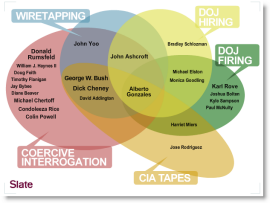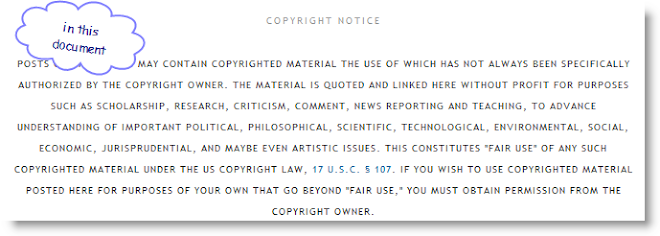Think Progress » Justice Dept. IG Investigating Possible Gonzales Obstruction Of Justice IncidentThe Senate Judiciary Committee revealed today that the Justice Department’s Inspector General Glenn Fine is investigating whether Attorney General Alberto Gonzales
may have acted unethically or illegally by attempting to “coach” Monica Goodling’s testimony.
In May, Goodling testified before Congress that, prior to resigning from the DoJ, she had an “uncomfortable” conversation with Gonzales, in which he “laid out” his version of the attorney firings and asked if she “had any reaction to his iteration.” Goodling said she did not think it was “appropriate for us to talk about that at that point.”
ThinkProgress raised the question of whether Gonzales’ actions could have constituted obstruction of justice. Sen. Sheldon Whitehouse (D-RI) raised a similar concern.
On June 5, Chairman Patrick Leahy (D-VT) sent a letter to Fine, asking, “Does the expansion of your inquiry include this matter?” referring to the Goodling allegations. Today, Fine responded:
In your letter, you referred to Monica Goodling’s testimony before the House Judiciary Committee on May 23, 2007, in which she stated that she had a meeting with the Attorney General in which the process leading to the removal of certain U.S. Attorneys was discussed. You asked whether our investigation includes this matter.
This is to confirm that the scope of our investigation does include this matter.
Read the full letter here.
In a statement released earlier today, Leahy voiced concerns that Fine’s investigation may be getting “too close for comfort” for the White House, and that the administration may try to shut it down:
The last time an internal investigation at the Department of Justice got too close for comfort the White House shut it down. I hope this investigation will not suffer the same fate as the OPR inquiry into the warrantlesss wiretapping program. This internal investigation is an important step in getting to the truth behind this matter, and they should be allowed to do their jobs without interference from this Administration.
UPDATE: Steve Benen notes, “Back on April 19, Attorney General Alberto Gonzales testified, under oath, that he had not spoken with ‘witnesses’ in the U.S. Attorney scandal about the events surrounding the purge because it would have been inappropriate. He told the Senate Judiciary Committee, ‘I haven’t talked to witnesses because of the fact that I haven’t wanted to interfere with this investigation and department investigations.’”







